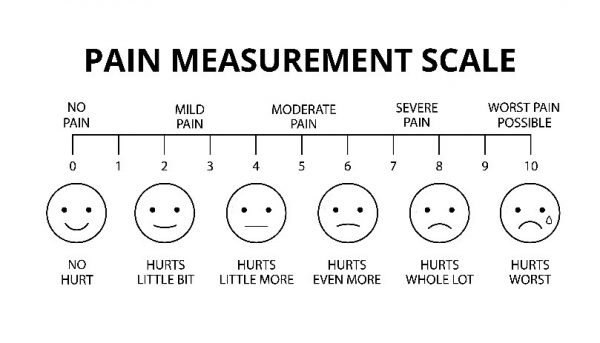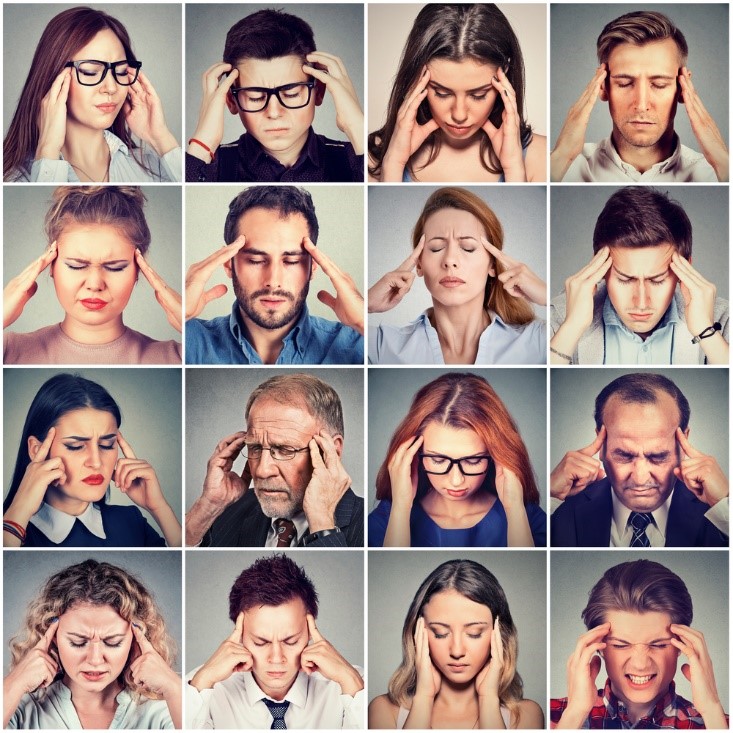Men and women aren’t from Mars and Venus — both sexes originate from Earth and are remarkably similar in their social, emotional, and physical needs. Yet, slight cultural and biological differences between men and women can have seemingly significant effects on their experience of life, potentially causing serious, debilitating disadvantages. However, often, real hardships are obscured by social expectations for men’s and women’s behavior. The perfect example of this is pain.
It is widely recognized that men and women experience pain differently, but few people understand the nuances of those differences. Because women must endure childbirth, an undeniably painful event, many people expect women to have a higher pain tolerance. Yet, study upon study has indicated the opposite to be true: Men can put up with greater amounts of pain — but they are less efficient at recovering from it. This widespread misconception requires further examination to ensure that men everywhere receive the proper pain treatment they deserve.
Women Feel Pain More Often
Despite undergoing childbirth, women seem to experience pain — or at least inform others of their pain experiences — more often than men do. Several studies looking at pain reporting have found that women are significantly more likely to report their pain, regardless of the anatomical region of that pain.
However, it is important to note how researchers collect and interpret this data. Most researchers have come to this conclusion after reviewing pain reports at health care facilities; female patients composed a greater percentage of these reports, so researchers conclude that women experience pain more frequently. To bolster this understanding, it is widely accepted that women are at greater risk for pain-causing conditions, including fibromyalgia, interstitial cystitis, migraine and tension headaches, and temporomandibular disorders.
Yet, it is possible that the data more accurately represents social pressures surrounding pain as opposed to physical experiences of pain. Men are expected to be strong and avoid complaining, especially about conceivably small aches and discomforts. Fearing disgrace, many men might avoid reporting their pain; they may prefer to suffer in silence than receive perceived public ridicule. Unfortunately, this means that potentially millions of men are forcing themselves to endure chronic pain while women are healthily accepting treatment for their discomfort from specialized clinics like this pain management center in Langhorne, PA. If the social stigma against men reporting their pain disappeared, this difference might disappear.
Men Fail to Recover From Pain
 No two pain patients are exactly alike, so no two pain treatment plans are identical. However, pain medications are common in pain management, especially in the beginning before a more comprehensive plan can be developed. Yet, kappa-opioids, a common type of prescription painkillers, are not equally as effective in men and women, which means men recover more slowly from pain due to less initial assistance from medications.
No two pain patients are exactly alike, so no two pain treatment plans are identical. However, pain medications are common in pain management, especially in the beginning before a more comprehensive plan can be developed. Yet, kappa-opioids, a common type of prescription painkillers, are not equally as effective in men and women, which means men recover more slowly from pain due to less initial assistance from medications.
In truth, it isn’t the drug that is behaving differently in male and female bodies; it is male and female kappa-opioid receptors failing to activate the drug’s molecules in equitable ways. Thankfully, researchers have recently experienced a breakthrough with developing a more stable kappa-opioid receptor, so men might be able to enjoy greater benefits from painkillers and recover from pain at faster rates.
Women Feel Pain More Intensely
Differences in intensity of experienced pain is a difficult issue for researchers to study because no one can truly understand what another person’s pain feels like. In studies involving human subjects, results of pain intensity have varied significantly: Sometimes the sexes report equivalent levels of pain, and sometimes women report greater pain severity. However, the latter outcome might be another result of men’s widespread reluctance to be vulnerable and accurately report on pain experiences.
Still, other research has indicated that women do, in fact, feel more intense pain, largely due to the higher amounts of estrogen and lower quantities of testosterone in their systems. In one study, male animals injected with estrogen had a lower tolerance for pain while female animals with elevated testosterone levels withstood greater amounts of pain.
Thus, it is possible that people with chronic pain, regardless of sex, have lower-than-typical levels of testosterone, which is inhibiting their ability to recover properly. Whatever the case, men and women need to seek appropriate treatment for their chronic pain and underlying conditions, so everyone can lead a full, pain-free life.


Comments are closed.